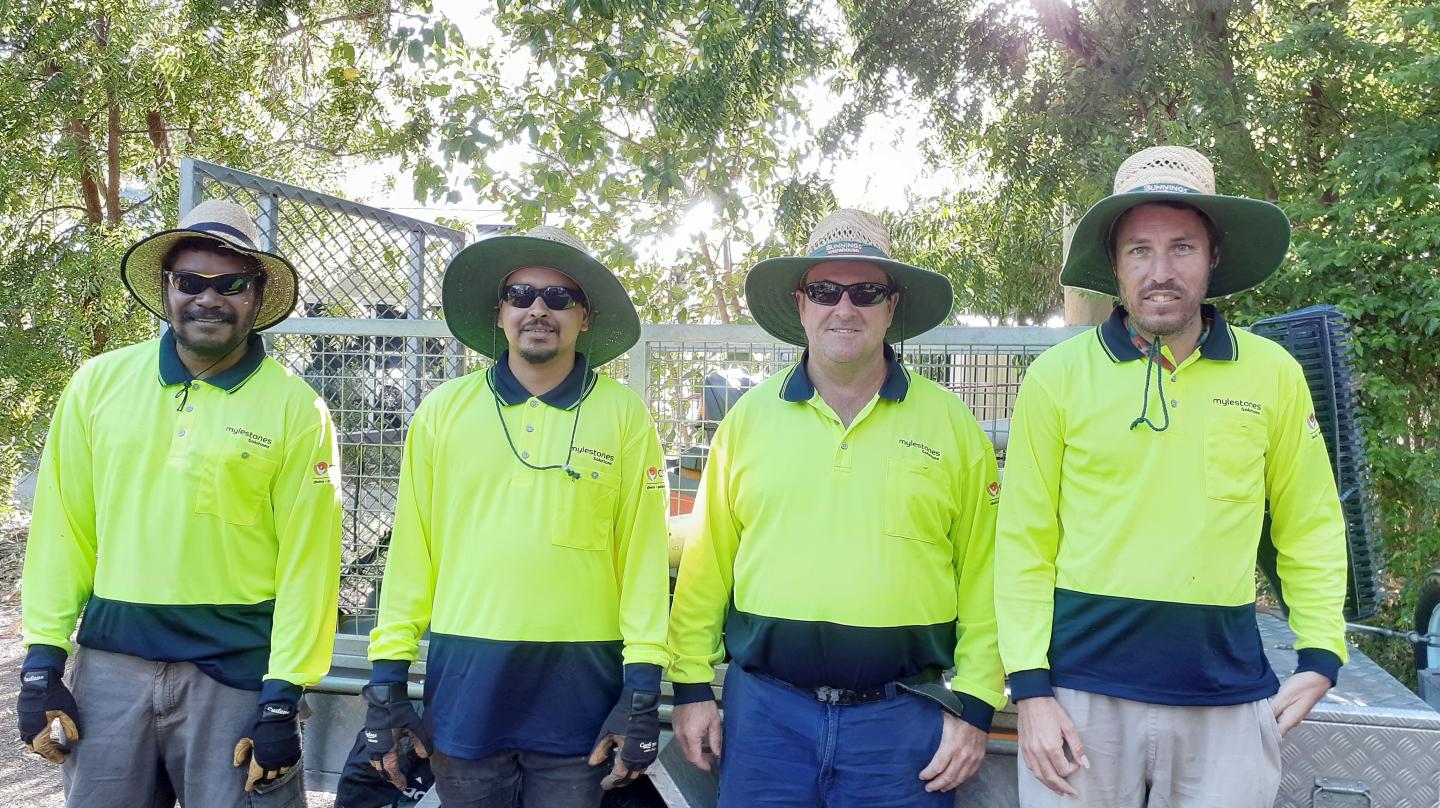You might think that your business is diverse, but if you don’t have anybody in your team with a disability, then the truth is you have a gaping hole to fill.
When Margate Post Office owner and manager Lynda Costanzo lost most of her long-serving team because they all fell pregnant at once, she needed to find people to replace them. She had a chat with a Mylestones recruiter and now has four new team members with a diverse range of disabilities she says she couldn’t do without. “I’d be lost without them,” Lynda says. “They each bring something different to the table and they’ve all flourished here.”
One in five Australians have a disability and more than 100,000 of them are of working age and actively looking for a job. Yet the reality is people with both mental and physical disabilities are often not seriously considered in the recruitment process because there is a business misconception that hiring them would create too much work and be too expensive and difficult. Businesses that continue to believe this mistruth that feeds into preconceived notions and judgements about what people with a disability are capable of are passing on an amazing pool of talent, the chance to decrease absenteeism and increase business productivity and profits.
Lynda Costanzo’s says her new team can do everything that’s been asked of them, and especially shine in providing outstanding customer service. “They are all good at demonstrating kindness and care and patience to our elderly customers and are eager to work hard and get the job done,” Lynda says. Spending time to ensure her new team understand the tasks and allowing them to relax into the role, so they feel comfortable asking questions is crucial, she says. “While they are settling in, you need to take it slowly and provide a soft place for them to fall,” Lynda says. “When they get the hang of it then they just shine.”

Someone who understands the value people with a disability can bring to a workplace is Mylestones Group General Manager Billie Lewis-Cassidy. In 10 years, Mylestones has found paid work for more than 17,000. Billie’s team helped a man with cerebral palsy into a truck driving role in an earth-moving business and a man with one leg into a job driving a coal mining truck in central Queensland. A recent university marketing graduate with hearing impairment had been knocked back 76 times before Mylestones found her a job in a dynamic communications team she’s now thriving in.
“When we make those phone calls to tell people with a disability that we’ve found them a job, it completely turns their life around,” Billie says. “It’s a life-changing moment for the entire family. It might mean Mum can go back to work, and it’s also an opportunity for independence for the person with a disability. One young man we found a job for recently described his new opportunity as his ‘golden ticket’.”
Billie says the feedback from business managers about the candidates her team finds for them is remarkably positive. “People with a disability are hard and loyal workers who bring energetic optimism to their workplace. They often have outstanding creativity and problem-solving skills, are less likely to take days off and more likely to improve workplace morale.”
Her Queensland and New South Wales recruitment teams find businesses and organisations who are willing to give their candidates a go in what is often their first paid job. It is difficult, because of a lack of on-the-job support for teenagers with a disability to find part-time work while they are still at school but they can fill that gap by working with local businesses or one or more of the 15 social enterprise businesses Mylestones run and get paid for it. Candidates have the chance to build real employment skills by working in a diverse range of businesses ranging from coffee carts to garden and maintenance crews to printing services and wig-making teams. The skills they learn in this supporting environment help them to make a transition to real-world employment.
Business giants and some city councils are also reaping the rewards of a disability-diverse workforce. Mylestones is working with BHP, Kmart and Woolworths to help them find solid employees. It’s going so well for all these businesses, that they’ve come back and asked for more. In the last three years, the people Myestones placed into Kmart have achieved double the retention rate compared to the industry average. “Businesses might want to just tiptoe in at first but then we find them a few great people and all of a sudden we are their preferred employment partner,” Billie says.
“We embed ourselves into the organisations and businesses we are working with so that we truly understand what they do. We want to put forward people who will be perfect for the job.
“People with disabilities should have the same opportunities to paid work as everyone else. The attitude business leaders need to shift from if, to how. That is, not can we do this, but how can we do this?"
12 REASONS WHY IT MAKES SENSE THAT BUSINESSES SHOULD BECOME DISABILITY DIVERSE
- Hiring people with a disability massively increases the available candidate pool because there are more than 100,000 looking for work right now.
- People with a disability are hard and loyal workers with excellent creativity and problem-solving skills. And they take less sick leave.
- Offering a person with a disability a job changes their life, gives them hope for the future and improves their self-confidence and mental well-being.
- Hiring a person with a disability through an organisation like Mylestones means they will have a support person to help ensure the entire recruitment process goes smoothly.
- Research shows it costs less than $500 to make small workplace adjustments to cater for a person with a disability and many of the costs are covered by grants anyway.
- When a person with a disability gets a secure, paid job, then they can become financially independent, reduce their reliance on welfare and may allow parents to go back to work.
- Research shows that millennials want to work for a disability-diverse organisation.
- Becoming a disability-diverse workplace helps break down the stigma around disability.
- Hiring a person with a disability may just transform your workplace as they spread their contagious positive energy.
- A disability-diverse business is more likely to attract customers who have a disability. Do you want to miss out on one in six Australians buying your product or using your service?
- Despite ill-informed opinions about how dangerous it could be to hire a person with a disability, the truth is they are less likely to have an accident or injury at work.
- Hiring a person with a disability will help your business realise if the physical space and your business systems are disability friendly.


